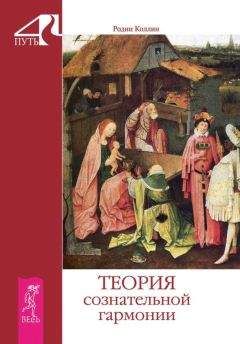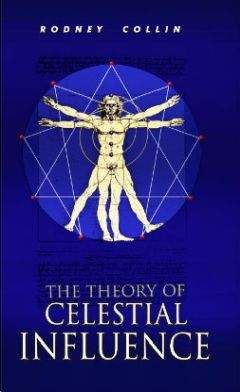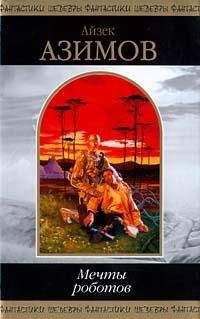властью, возможности государства быть посредником в классовой борьбе ограниченны, и слишком высокая премия за достижение вершин политической власти рождает политическую нестабильность. Широкие последствия такого положения дел весьма интересны и заслуживают краткого упоминания. Во-первых, оно означает классовое правление с помощью грубой силы, так как государство и правительство слишком вовлечены в классовую борьбу, а, поскольку победителю достается дорогой приз, тон политики авторитарный, господствующая фракция усваивает манеры сеньора. Во-вторых, грубое насилие и вовлеченность государства и правительства в классовую борьбу все больше затрудняют маскировку классовых противоречий и стимулируют развитие классового самосознания. В-третьих, возможности государства сделать социально-экономический строй более однородным ограничены. В-четвертых, тенденция осуществлять накопление капитала с помощью государственной власти, а не посредством производительной деятельности, делает постколониальный капитализм менее перспективным для развития производительных сил и увеличения прибавочного продукта.
Библиография
Ake C. Revolutionary Pressures in Africa. London, 1978.
Ake C. Tanzania: The Progress of a Decade. – The African Review, 1972, vol. 2, № 1.
Ake C. A Theory of Political Integration. Homewood, 1967.
Ake C. Explanatory Notes on the Political Economy of African. – Journal of Modern African Studies, 1976, vol. 14, № 1.
Alavi H. The Post Colonial State. – New Left Review, 1972, № 74.
Amin S. Neocolonialism in West Africa. Harmondsworth, 1974.
Amin S. Unequal Development: An Essay on the Social Formations of Peripheral Capitalism. New York, 1976.
Awiti A. Economic Differentiation in Ismani. – The African Review, 1973, vol. 3, № 2.
Beer C. The Politics of Peasant Groups in Western Nigeria. Ibadan, 1975.
Bernstein H. Notes on Capital and Peasantry. – Review of African Political Economy, 1977, № 10.
Bernstein H., ed., Underdevelopment and Development. Harmondsworth, 1973.
Bujra A. Technology and Development in Africa. – Africa Development, 1977, vol. 2, № 2.
Cliffe L. The Policy of Ujamaa Villages and the Class Struggle in Tanzania. —L. Cliffe, J. Saul, eds. Socialism in Tanzania, vol. 2. Nairobi, 1970.
Cohen R. Classes in Africa: Analytical Problems and Prospectives. – The Socialist Register. London, 1972.
Dumont R. African Agricultural Development: Reflection on the major lines of advance and the barriers to progress. Addis Ababa, 1965.
Elkan W. Is a Proletariat Emerging in Kenya? – Economic Development and Cultural Change, 1976, № 24.
Fieldhouse D. Unilever Overseas: The anatomy of a multionational. London, 1979.
Foster-Carter A. The Modes of Production Controversy, – New Left Review, 1978, № 107.
Godfrey M., Langdon S. Partners in Underdevelopment? The Transnationalisation thesis in a Kenyan context. – Journal of Commonwealth and Comparative Politics, 1976, vol. 14, № 1.
Harris R., ed. The Political Economy of Africa. Cambridge, Mass., 1975.
Hayter T. Aid as Imperialism. Harmondsworth, 1971.
Hveem H. The Global Dominance System. – Journal of Peace Research, 1970, vol. 10, № 4.
Helleiner G. Socialism and Economic Development in Tanzania. – Journal of Development Studies, 1972, № 8.
Hill P. Studies in Rural Capitalism. Cambridge, 1970.
International Labour Organisation. Employment Incomes and Inequality in Kenya. Geneva, 1972.
International Monetary Fund. International Financial Statistics, October 1976.
Judd E. The Changing Face of Foreign Business in Africa: Participation and Integration. – African Affairs, 1977, № 76.
Kabunda K. Multinational Corporations and the Installation of Externally-Oriented Economic Structures in Contemporary Africa: The Example of the Unilever-Zaire Group. – C. Widstrand, ed. Multinational Firms in Africa. Uppsala, 1975.
Kamau C. Localising Capitalism: The Kenya Experience. – D. P. Ghai, ed. Economic Independence in Africa. Nairobi, 1973.
Кitching G. The Concept of Class and the Study of Africa. – The African Review, 1972, vol. 2, № 3.
Кitching G. Modes of Production and Kenyan Dependency. – Review of African Political Economy. 1977, № 8.
Langdon S. The Political Economy of Dependence: Note Towards Analysis of Multinational Corporations in Kenya. – Journal of East African Research and Development, 1974, № 4.
Leitner K. Workers’ Trade Unionism and Peripheral Capitalism in Kenya After Independence. Verlag Peter Lang, 1977.
Meillassoux G. A Class Analysis of the Bureaucratic Process in Mali. – Journal of Development Studies, 1970, vol. 6, № 2.
Meir G. Leading Issues in Development Economics. New York, 1964.
Merhau M. Technological Dependence, Monopoly and Growth. London, 1969.
Myrdal G. What is Development? – Journal of Economic Issues, December 1974.
Payer C. The Debt Trap: IMF and the Third World. New York, 1974.
Petras J. Class and Politics in the Periphery and the Transition to Socialism. – Review of Radical Political Economy, 1976, vol. 8, № 2.
Post K. «Peasantisation» and Rural Political Movements in Western Nigeria. – Archives Europeènes de Sociologie, 1972, vol. 13, № 2.
Proctor J. E., ed. Building Ujamaa Villages in Tanzania. Dar es Salaam, 1971.
Raikes P. Ujamaa Villages and Rural Socialist Development. – Review of African Political Economy, 1975, № 3.
Rana K. Class Formation and Social Conflict: A Case Study of Kenya. – Ufahamu. 1977, № 7.
Republic of Kenya. Economic Survey. Nairobi, 1975.
Robson P., Lury D., eds. The Economies of Africa. Evanston, 1969.
Rweyemamu J. The Political Economy of Foreign Private Investment in the Underdeveloped countries. – The African Review, 1970, vol. 1, № 1.
Sandbrook R. Proletarians and African Capitalism: The Case of Kenya 1960–1972. Oxford, 1974.
Sandbrook R. Cohen R., eds. The Development of an African Working Class. London, 1975.
Santos T. Dos. The Structure of Dependence. – American Economic Review, 1970, vol. 60, № 2.
Shaw R., Grieve M. Dependence on Development: International and Internal Inequalities in Africa. – Development and Change, 1977, vol. 8, № 3.
Shaw R., Grive M. The Political Economy of Resources: Africa’s Future in the Global Environment. – Journal of Modern African Studies, 1978, vol. 16, № 1.
Shivji I. Class Struggle in Tanzania. London, 1975.
Silver J. Class Struggles in Ghana’s Mining Industry. – Review of African Political Economy, 1978, № 12.
Swainson N. The Rise of a National Bourgeoisie in Kenya. – Review of African Political Economy, 1977, № 8.
United Nations Economic and Social Council. Economic Commission for Africa. Survey of Economic and Social Conditions in Africa, 1976 E/CN.14/654, February 1977; Applications of a Unified Approach to Development Analysis and Planning Under African Conditions, E/CN.14/CAP.6/4; A Critique of Conventional Planning in Africa in Relation to the Unified Approach; Report on a Unified Approach to Development Analysis and Planning, E/CN.5/519. December 1974.
Weeks J. Employment, Growth and Foreign Domination in Underdeveloped Countries. – Review of Radical Economies. 1972, № 4.
World Bank. Ivory Coast: The Challenge of Success. Baltimore, 1978.





